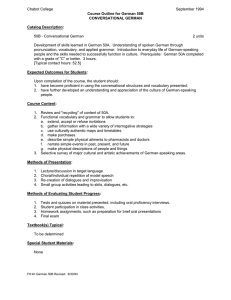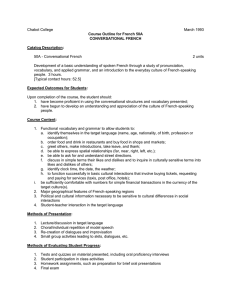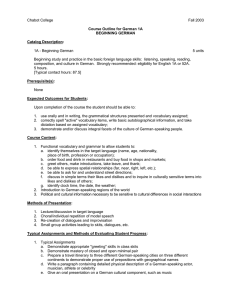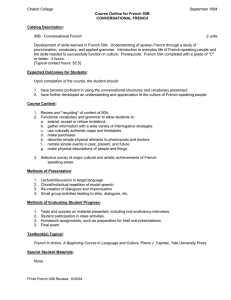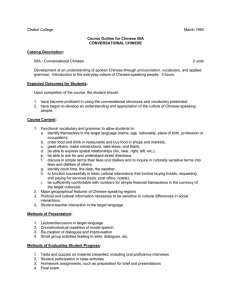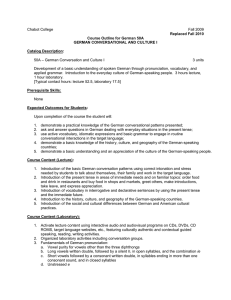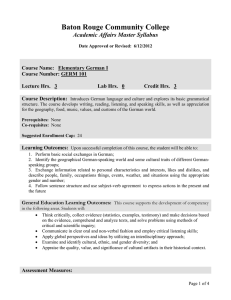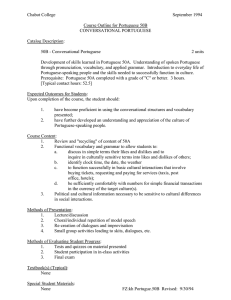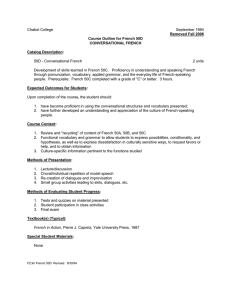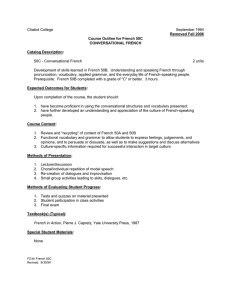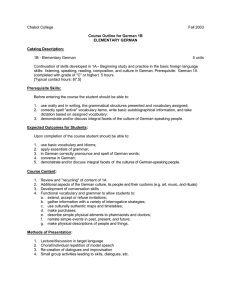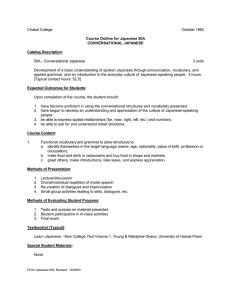Chabot College March 1993 50A - Conversational German
advertisement
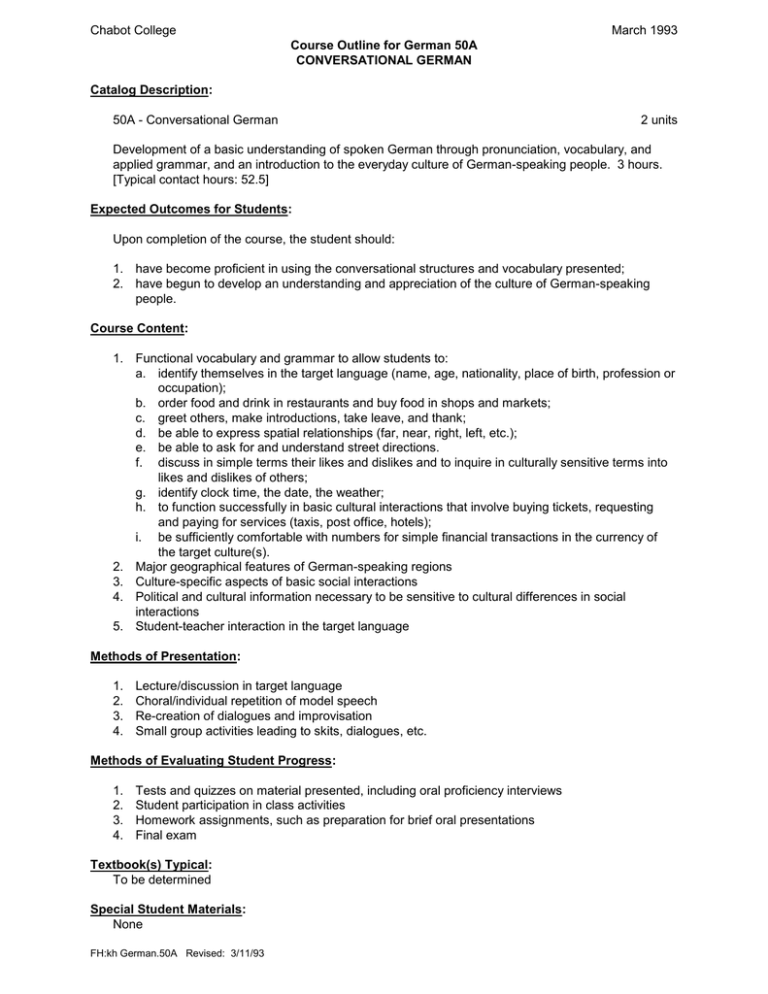
Chabot College March 1993 Course Outline for German 50A CONVERSATIONAL GERMAN Catalog Description: 50A - Conversational German 2 units Development of a basic understanding of spoken German through pronunciation, vocabulary, and applied grammar, and an introduction to the everyday culture of German-speaking people. 3 hours. [Typical contact hours: 52.5] Expected Outcomes for Students: Upon completion of the course, the student should: 1. have become proficient in using the conversational structures and vocabulary presented; 2. have begun to develop an understanding and appreciation of the culture of German-speaking people. Course Content: 1. Functional vocabulary and grammar to allow students to: a. identify themselves in the target language (name, age, nationality, place of birth, profession or occupation); b. order food and drink in restaurants and buy food in shops and markets; c. greet others, make introductions, take leave, and thank; d. be able to express spatial relationships (far, near, right, left, etc.); e. be able to ask for and understand street directions. f. discuss in simple terms their likes and dislikes and to inquire in culturally sensitive terms into likes and dislikes of others; g. identify clock time, the date, the weather; h. to function successfully in basic cultural interactions that involve buying tickets, requesting and paying for services (taxis, post office, hotels); i. be sufficiently comfortable with numbers for simple financial transactions in the currency of the target culture(s). 2. Major geographical features of German-speaking regions 3. Culture-specific aspects of basic social interactions 4. Political and cultural information necessary to be sensitive to cultural differences in social interactions 5. Student-teacher interaction in the target language Methods of Presentation: 1. 2. 3. 4. Lecture/discussion in target language Choral/individual repetition of model speech Re-creation of dialogues and improvisation Small group activities leading to skits, dialogues, etc. Methods of Evaluating Student Progress: 1. 2. 3. 4. Tests and quizzes on material presented, including oral proficiency interviews Student participation in class activities Homework assignments, such as preparation for brief oral presentations Final exam Textbook(s) Typical: To be determined Special Student Materials: None FH:kh German.50A Revised: 3/11/93
